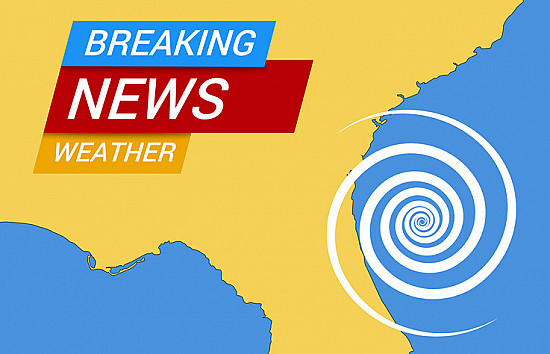If you live in a coastal area, being prepared for a hurricane is essential. Storms can develop quickly, leaving little time to figure out where to go and what to bring if you have to evacuate. Additionally, medical essentials like medicine and equipment can easily be overlooked in the heat of the moment.
“Someone might bring their diabetes medication but forget their glucose monitor, or bring their hearing aid but forget the extra batteries,” says Dr. Scott Goldberg, medical director of emergency preparedness at Brigham and Women’s Hospital and a longtime member of FEMA task forces that respond to hurricane-ravaged areas.
Here’s what to expect this hurricane season and how to prioritize your health with a hurricane kit.
What will the 2024 hurricane season look like?
This year’s Hurricane forecast Emphasize the urgency of starting preparations now.
Forecasters with the National Oceanic and Atmospheric Administration’s National Weather Service are predicting that the 2024 hurricane season, which runs through November 30, will be more active than usual.
Meteorologists expect 17 to 25 storms with winds of 39 mph or more, including eight to 13 hurricanes, four to seven of which could become major hurricanes with winds of 111 mph or more.
What plan should you use?
Preparing for a potential major storm is a lot of work. Long before the severe winds and torrential rains arrive, you should gather hurricane preparedness supplies, plan how to secure your home, and know where to go if you need to evacuate (especially if you live in a flood zone). Contact your city or county emergency management department for shelter information.
If you need assistance evacuating for health reasons or if you need medical assistance at the evacuation shelter, find out if your county or city has a special needs registry. Like this photo from FloridaRegistering allows emergency personnel to be notified about the storm and transport you to special shelters equipped with medical staff, hospital beds and possibly oxygen tanks.
What should I pack?
Shelters provide a safe place to ride out the storm with toilets, water, and basic food, but Bring everything elseIt is important to pack medical equipment and sufficient medicines and supplies.
“It’s natural to grab a prescription medication that’s in your medicine cabinet, but what if you only have a two-day supply? It may be a while before you can get a refill. We recommend having at least a 14-day or 30-day supply of each prescription,” says Dr. Goldberg. “Ask your doctor if you can get extra refills to keep in your emergency bag.”
Other health-related items you may want to bring include:
- Everyday medical supplies such as blood pressure monitors, heart rate monitors, CPAP machines, wheelchairs, walkers, etc.
- Over-the-counter medications you take regularly, such as heartburn medications or painkillers
- Foods for special dietary needs, such as gluten-free foods for people with celiac disease (if you have infants or young children, you will need to bring foods that they can eat)
- Healthy, non-perishable snacks such as nuts, nut butters, trail mix, dried fruit, granola bars, protein bars, whole grain bread, crackers, and cereal
- Hygiene items such as soap, hand sanitizer, toothbrushes and toothpaste, shampoo, deodorant, infant or adult diapers, lip balm, wet wipes, and toilet paper, as these items are often in short supply in evacuation shelters.
Remember the basics
In some ways, shelter life can be thought of as being a bit like camping, and you’ll need a lot of basic supplies to survive there, including:
- Sleeping bags or blankets and pillows for each family member
- Clean towels and washcloths
- Several changes of clothes per person
- First aid kit
- Flashlight and spare batteries
- Electronic device chargers
- Rechargeable battery pack.
Bring important documents
In addition to your equipment, please also bring the following important documents:
- A list of medications, vitamins, and supplements you are taking (include the name, dose, and how often you take them)
- A list of the names, addresses, and phone numbers of your doctor and any specialists treating you
- A list of emergency contacts and their phone numbers
- Pharmacy phone number and address
- Copies of your birth certificate and driver’s license
- Copies of home, auto and life insurance policies
- Copy of your health insurance card
- Copies of your advance directives (including living wills and health care proxy forms).
“Keep these documents on a flash drive or make a copy so your doctor can easily refer to them in an emergency. Place them in a zip-lock plastic bag to protect them from getting wet,” advises Dr. Goldberg.
Get ready now
Get started today by gathering as many emergency bag items as you can, including bags. Small suitcases, backpacks, or duffel bags for the whole family are great.
And don’t put off making these important preparations. “Hurricanes are huge stressors. You may feel anxious, sleep-deprived, fatigued, and emotional,” says Dr. Goldberg. “All of these things can make it hard to stay calm. You will be doing yourself and your family a favor by talking about and starting a hurricane preparation now.”
